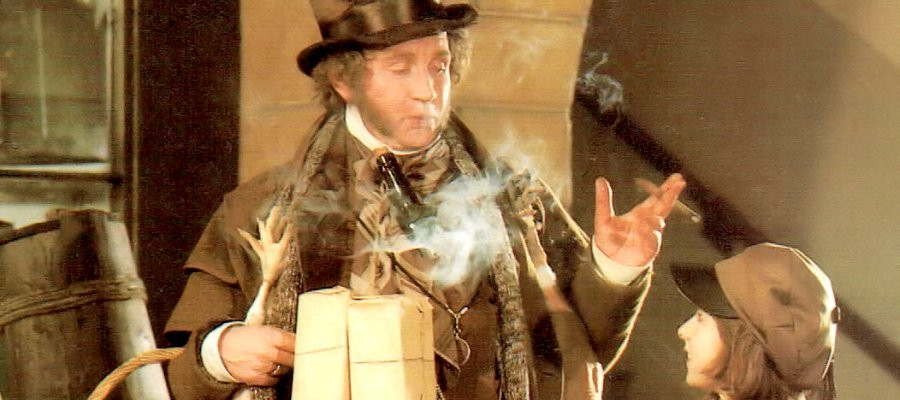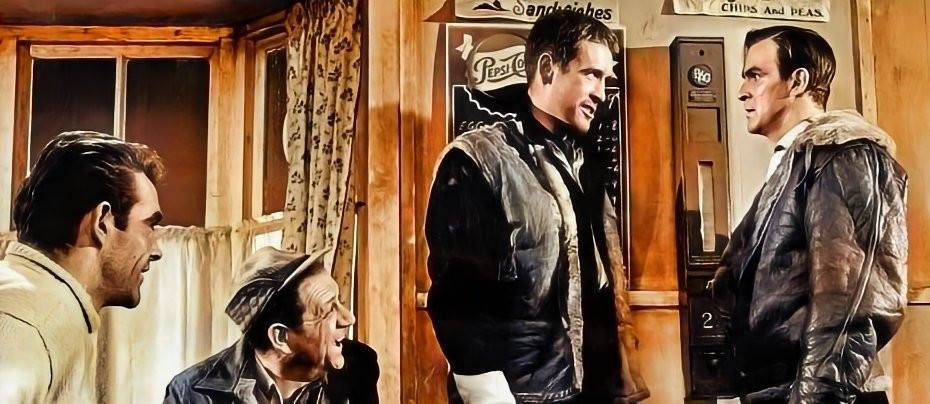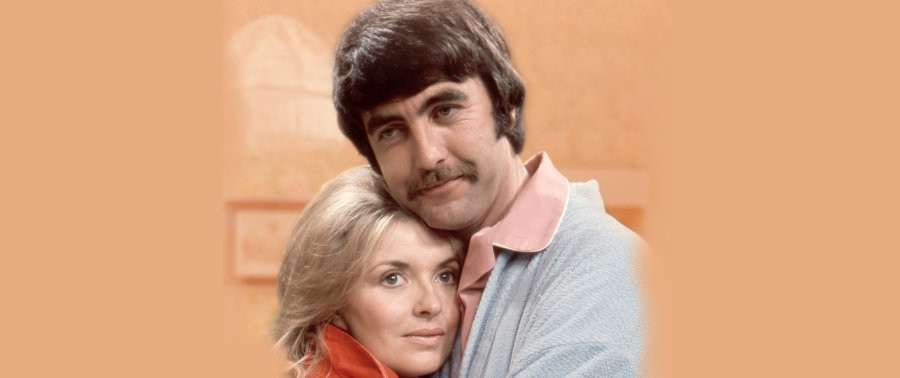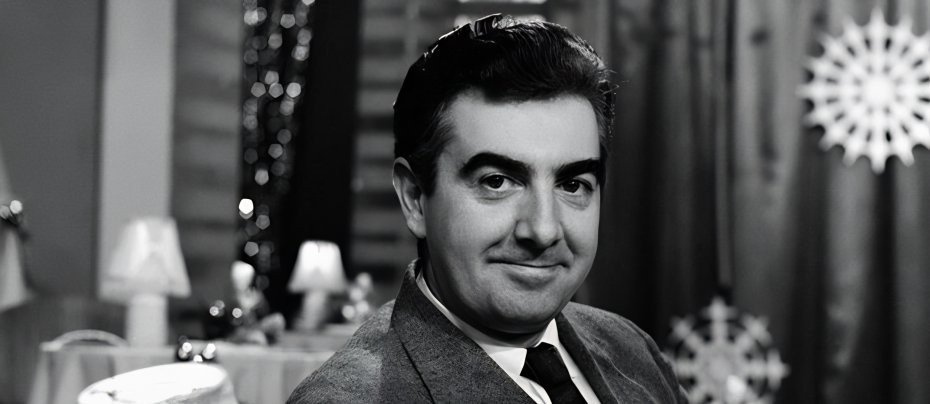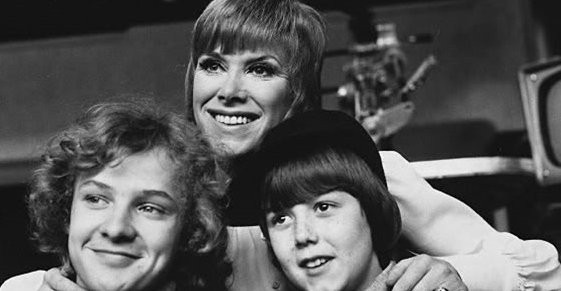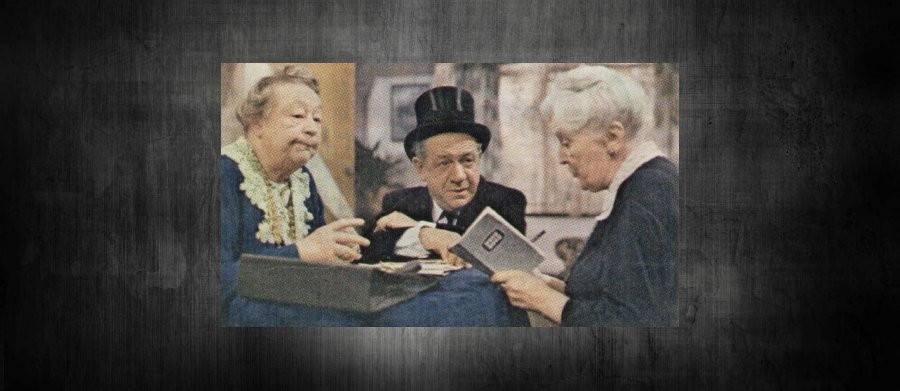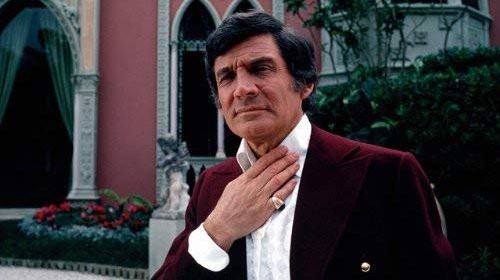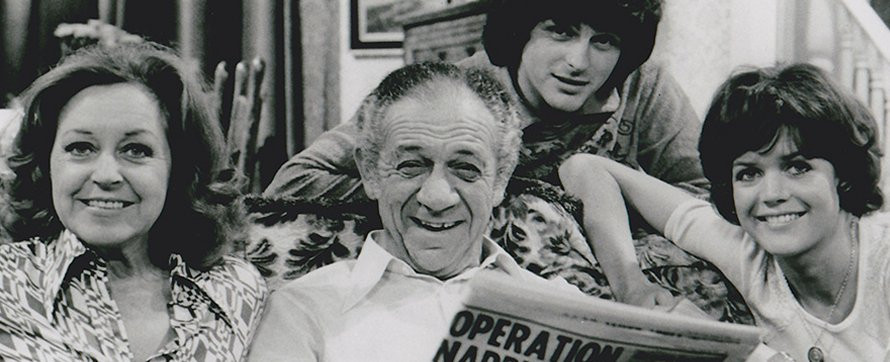
Bless This House
1971 - United KingdomIn 1971 the TV Times announced the arrival of a new television family-the Abbotts as 'just another group of people who find themselves - unfortunately, they think - related and, at the same time, divided by that ever-present generation gap.'
Devised by Vince Powell and Harry Driver, Bless This House was a starring vehicle for Sid James that showed him in a new and unfamiliar light-as a family man. Sidney Abbott, although married in blissful harmony to his devoted wife Jean, still showed many of the traits that Sid James was well known for in previous TV outings, but now he played father to teenage daughter Sally and ex-art student, but unemployed son, Mike. The plots mostly involved Sid's efforts to come to terms with his children's modern values or sneak away from his wife in order to indulge in one of his favourite pastimes of booze and football (he supported Chelsea).
The series was unusually both directed and produced by William G. Stewart, later the deviser and host of the popular C4 quiz show, Fifteen To One. It was the first time Stewart had worked with Sid, and during rehearsals for the first episode, Stewart had serious doubts about the show, because he found both the script, and Sid James' performance particularly lacklustre. Taking Sid aside, Stewart confided his fears and said they needed to do something about it. "That's not the way I work", Sid told him. "I don't want to leave my best fight in the gym." Stewart was unconvinced until the recording when Sid gave one of the funniest performances the producer/director had ever seen. For the next five years, Stewart claimed that he never saw Sid's full performance until the studio recording.
Powell and Driver set out from the start to exploit the friction that exists in most families made up of middle-aged parents and teenage children. "The Abbott family live in a state of perpetual turmoil, varying between hysterical neutrality, punctuated with occasional moments of veiled hostility, and open warfare", they told the TV Times. It proved to be an instant hit with viewers and by the end of the first season the show was already well-established with an audience of 9 million viewers and ending 1971 as the fifth most popular programme. William G. Stewart also commissioned episodes from a variety of script-writers. Vince Powell and Harry Driver contributed a dozen scripts but Carla Lane, whilst penning The Liver Birds for the BBC, wrote 25, including 22 out of the first 42 episodes.
Playing Sid's wife, Jean, was Leeds born Diana Coupland who had begun her showbiz career as a singer with a number of big bands in the 1940s and through to the 1960s. One of her most celebrated performances, however, was attributed to another star: When it was discovered that Ursula Andress could not sing, Coupland was employed by the makers of the first James Bond movie "Dr. No" to sing "Underneath the Mango Tree", in the famous scene where Andress' character, Honey Rider, emerges from the sea. Bless This House made Coupland a household name but the image of Jean was one she found difficult to shake off after the series ended in 1976 following Sid James' death.
Playing Sid and Jean's teenage children were Sally Geeson as Sally and Robin Stewart as Mike. However, when the series proved popular enough to be transferred to the big screen in 1972, Stewart was absent. There was nothing sinister in this as Robin Stewart told Television Heaven; "I was in every episode from the beginning of the series to the end six years later. I could not do the film as I had signed months previously to do another summer tour lasting six months." Not wanting to wait until Stewart was free of previous commitments, and possibly knowing that in order to make a financial profit it was essential for the film to go ahead whilst the TV series was still fresh in the mind and popular with the public, the makers and distributors, Rank, went ahead with Robin Askwith in the role of Mike. Sid James would have felt at home during the making of the film as it was made by the 'Carry On' team director; Gerald Thomas.
The series finished in 1974 as one of the best loved and longest-running sitcoms of the era, Sid James' popularity was as high as it had ever been. In 1976 Sid was talked into reviving the series. The final programme was screened just four days after the stars death on stage on 26 April 1976. "Sid James was a comedy writers dream," said Vince Powell. "Because if a line wasn't that brilliant he would have the knack of turning ordinary lines into brilliant lines." William G. Stewart agrees: "He knew exactly what he was doing. Every one of those odd grimaces and looks to one side and boyish little whimpers-he knew what they meant and how to use them. Sid was a very clever actor." Gerald Thomas added: "His interpretation of a script was superb. We never wrote funny lines for Sid. His comedy came out of the situation and his interpretation of other people's funny lines. He was a remarkable actor with impeccable timing."
Seen this show? How do you rate it?
Seen this show? How do you rate it?
Published on November 30th, 2018. Written by Laurence Marcus (28 October 2005) for Television Heaven.


